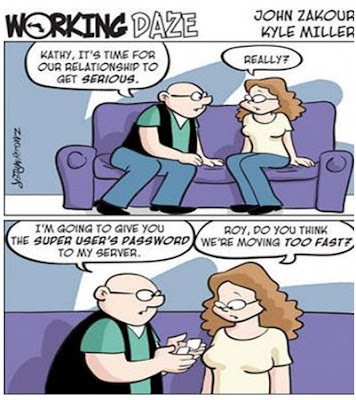
Today, most people rely on computers especially the Internet to create, store and manage critical information. Information transmitted over the Internet is more vulnerable and has a higher degree of security risk than internal networks because they are open to anyone. As Internet criminals grow smarter and sneakier, it is increasingly difficult to keep our personal and financial data safe. Therefore, I strongly believe that it is important that users take preventive measures to protect oneself from falling victim to fraud or identity thief.
Here are several approaches of my choice on how to safeguard our personal and financial data:

Here are several approaches of my choice on how to safeguard our personal and financial data:

- Be vigilant and cautious about providing your information
Do not disclose bank account numbers, credit card account numbers, and other personal financial data on any Web site or online service location, or on the phone, or through the mail unless you receive a secured authentication key from your provider. Crooks may pose as representatives of survey firms, banks, Internet service providers and even government agencies to get you to reveal your SSN, mother's maiden name, financial account numbers and other identifying information. It is important to know that by even giving simple personal information such as date of birth and mother's maiden name can be just as dangerous as financial information. - Never open mystery attachments
Never open an attachment or click on a link sent to you by an unknown party. Attachments can contain viruses and links can lead unsuspecting users to dummy sites where they are asked to input financial information. - Avoid accessing financial information in public
Resist logging on to check your bank balance when working from a coffee shop that offers wireless access. These systems are convenient, but also unknown. Casual users have no way of assessing how sturdy their firewalls are. - Choose you PIN wisely
While you want to choose something you'll remember, you don't want it to be something that a clever thief could figure out just by learning your birth date or your child's name. A combination of uppercase and lowercase letters, numbers, and symbols will offer you more security. Never write this information down and never carry it in your wallet or briefcase.
- Pay attention when using an ATM
Be aware of others nearby when entering your Personal Ide ntification Number (PIN) at an ATM. Keep your eyes peeled for anyone who seems a little too interested in your transactions. Use your free hand to shield the keypad when entering your PIN.
ntification Number (PIN) at an ATM. Keep your eyes peeled for anyone who seems a little too interested in your transactions. Use your free hand to shield the keypad when entering your PIN. - Update your browser regularly
Updating your browser on a regular basis can help plug up security holes, so make it a habit. - Install a firewall
A firewall is a software program designed to allow good people in and keep bad people out. Most new computers come with firewalls integrated into their operating systems. Those who have a DSL or cable modem have an added layer of protection because these modems come with yet another firewall built in. If you have an older computer or use dial up, you may need to purchase a firewall separately and install it yourself.
these modems come with yet another firewall built in. If you have an older computer or use dial up, you may need to purchase a firewall separately and install it yourself. - Install and update antispyware and antivirus software
Microsoft and numerous application vendors offer users regular updates to existing antispyware programs, so be on the lookout. As for antivirus protection, Symantec and Norton antivirus are popular choices. It cleans the computer and protect personal information, financial data and etc.
No comments:
Post a Comment